QuestionHello, Just found your web site and not knowing where to go for help...I'm going to try you. We have no horse experince at all. We have just purshased a 3 year old gelded donkey. The pervious owners had him appox. 1 yr. and apparently he was passed around a lot before that. We have kept himm in a 20x20 pen since we got him 2 days ago. He did lift the latch and ran through the brushes about a mile on his first day. We did get him back by running our goats up beside and pass him. He followed them home. Problem. I just went into his pen to feed him (as well his goat friend that came with him) as he was eating (after I tied up the bag) I was petting him at the front..he turned very quickly and kicked me then proceded to kick at me until I backed out of the pen. I LIMPED back in the pen a few seconds later, got half the distance to him (talking nicely to him) and he turned to kick at me again. Is this normal food aggresion? I have 5 small children. I want them to be around him and not be afraid. Any suggestions on how to handle this? I'm going to try going into his pen again tonight to clean it. I will make sure my husbend is around to come to my rescue as now I am not so brave. We would really like to train this donkey to pull a cart and carry the kids on his back. We would really appreciat any help or suggestions that you may have. Thanks for you time. Charlotte
AnswerHi Charlotte,
I don't have a lot of experience with donkeys, but I can give you a few ideas and suggestions to try. Donkeys are very intelligent members of the equine family, and learn quickly. They also don't forget what they've learned. This can be both good and bad. I'll explain later.
From what you were saying, the fact that he's been passed around a bit means that he probably hasn't had the opportunity to develop a relationship with humans. He needs to understand that lashing out at humans won't be tolerated. Try going into his pen at a time when he's not eating. This way, you can determine whether his kicking was food-aggression or just a desire to get you out of his space.
Do not go into his pen "unarmed". In other words, take a riding crop or stick with you and, if he spins his butt to kick, smack his butt. (Riding crops are best because they're flexible and won't harm him, but they sting and make a point. You can get one at any tack store or at Stateline Tack online.) Somewhere in his past he must have learned that he could drive a human away with his hooves. Unfortunately, when he was able to get you out of his pen by kicking at you, it reinforced what he'd learned previously. This means that you absolutely cannot let this happen again. If he spins his butt to kick at you, go after him and don't let up until he backs down.
The other thing that has to happen is that he needs to be given an opportunity to behave well and be rewarded for it. In order to start giving him some positive reinforcement, you're going to have to halter him. If you don't have a halter for him, I'd suggest buying a rope halter. It's a halter made of woven nylon ropes, knotted in certain places to allow you to put pressure on his nose and the top of his head if needed to encourage him to lead properly.
Once you get him haltered, take him for walks and work on getting him to walk nicely on the lead. Don't allow him to walk in front of you or to crowd your space. If he does, use the end of your lead rope to swat him. When he does what you ask of him, give him lots of verbal praise and pets on his neck and shoulders. DO NOT use food as a reward - it'll encourage food aggression. If he's really crowding your space and doesn't respond to the end of the lead rope, use your crop to maintain your space. Soon he'll understand that he gets pats and praise for doing what you want, and gets swats for misbehaving.
Teaching him to lead properly is one of the most important things you can do. I'd suggest picking up a book by John Lyons on basic horse training. Lyons is a well-known expert in the horse world, and has a really good way of explaining why certain things are important. His books aren't very expensive - around $15 each - and they'll give you a base of knowledge to work from.
Hope these things help. Please don't hesitate to write me again if you have more questions. Good luck with your little guy!
--Susan

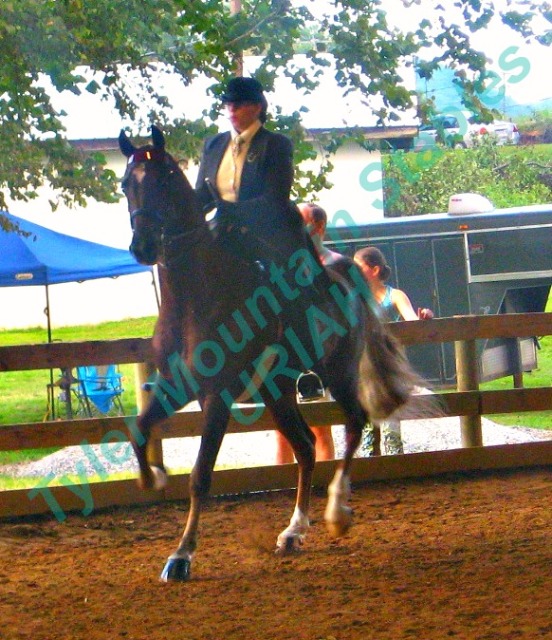 Double bridle prob.
Question
Uriah and Hope
I have a saddlebred and
Double bridle prob.
Question
Uriah and Hope
I have a saddlebred and
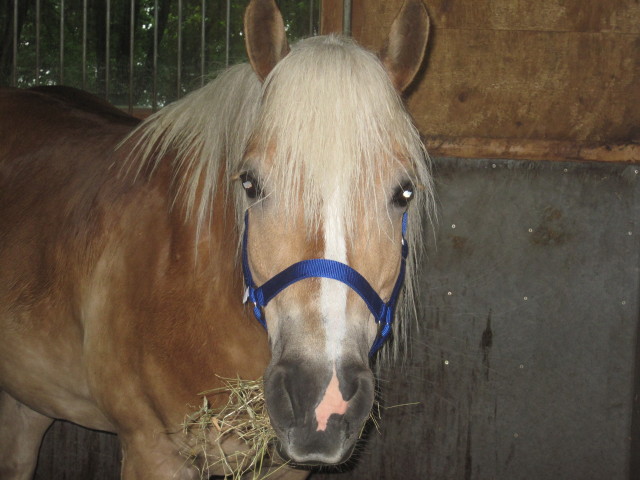 horse wont walk alone......
Question
copain my horse
ok so my horse (not mine but i
horse wont walk alone......
Question
copain my horse
ok so my horse (not mine but i
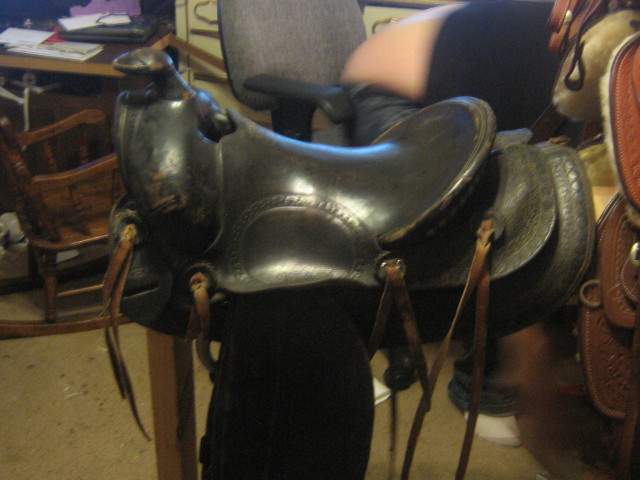 saddle
Question
saddle
I recently acquired a saddle made by He
saddle
Question
saddle
I recently acquired a saddle made by He
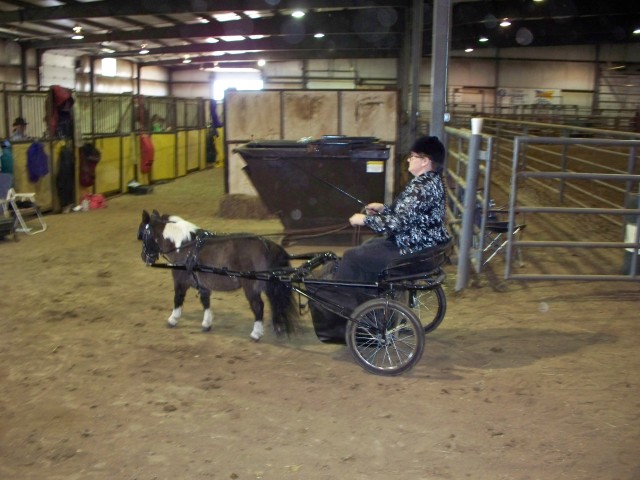 Mini Horse Training
QuestionToughy the mini
QUESTION: Hello (again!)
Mini Horse Training
QuestionToughy the mini
QUESTION: Hello (again!)
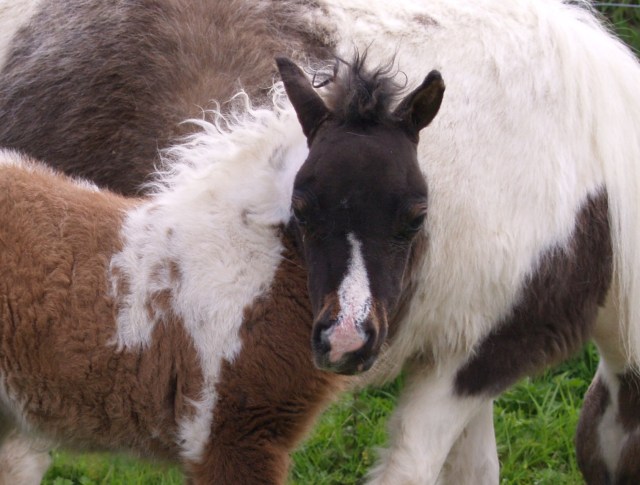 Facial nerve damage in a foal
QuestionAmerican Miniature Foa
QUESTION: Hello
I
Facial nerve damage in a foal
QuestionAmerican Miniature Foa
QUESTION: Hello
I